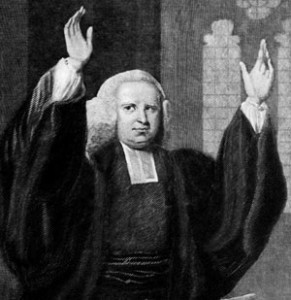Theology
Foreknowledge and Predestination
Author’s note:
This post is constructed on a foundation of belief in the truth of scripture. The discussion serves to explore, study, and seek meaning classified by many as mysteries of the Christian faith. Attempts toward comprehension of these subjects push against constraints of man’s mind considering self existence, time, eternity, created man, and the Uncreated God. These concepts extend beyond bounds of man’s thinking — particularly those of this author. These thoughts are offered as concepts to contemplate rather than to understand or grasp.
“Seek not to understand that you may believe, but believe that you may understand.” — Saint Augustine
Two Words — Two Definitions
What is the difference between foreknowledge and predestination? They are words with similar but different meanings. In Paul’s letter to Christians in Rome he states God both foreknew and predestined them to become conformed to the image of His Son.
“For those whom He foreknew, He also predestined to become conformed to the image of His Son, so that He would be the firstborn among many brethren;” (Romans 8:29, NASB95)
Paul clearly acknowledges differentiation between foreknowledge and predestination in Romans 8 but he primarily focuses on commonality and connection of the two concepts. Where can contrast between the meanings underlying the terms be found in the bible?
Examples — Foreknowledge and Predestination in the Bible
One passage which casts light on this issue is I Samuel 23: 6–13 where David asks two questions of his Lord and God: (1) will Saul come to the city of Keilah to destroy the city on account of David as he had heard? And (2) will the people of Keilah turn him over to Saul to avoid Saul’s wrath? God answers both of David’s questions in the affirmative saying (1) “He will come down,” and (2) “They will surrender you.” Neither of these events God foresaw actually happened. Upon hearing God’s answers, David and his men leave the city. (1) When Saul hears of David’s departure (v. 13), he aborts his trip to Keilah. Saul never made it to the city. (2) The men of Keilah never turned David over to Saul. This passage demonstrates an important distinction between foreknowledge and predestination. God foresaw Saul’s intent and the resulting actions which could result and reported that foreknowledge to David. God knows the beginning from the end. God certainly foreknew the actual result. God could have responded to David with specificity and detail on the future events, He chose not to do so. God spoke the universe into existence. God also could have spoken a certain outcome and predestined the events. God chose not to go that route; He chose not to exercise His Sovereignty in that manner in I Samuel 23.
““Remember the former things long past, For I am God, and there is no other; I am God, and there is no one like Me, Declaring the end from the beginning, And from ancient times things which have not been done, Saying, ‘My purpose will be established, And I will accomplish all My good pleasure’;” (Isaiah 46:9–10, NASB95)
![bigstock-Michaelangelo-s-the-Creation--5296602 [Converted]](http://sheepblog.org/wp-content/uploads/bigstock-Michaelangelo-s-the-Creation-5296602-Converted-300x200.png) Predestination is fundamentally a concept specific to God. Only God has the perspective and power to predetermine future events. Mankind lacks knowledge and the ability to predetermine future events. Man can envision and work towards building a specific future. However, when man attempts this it can be negative. Unintended consequences may occur leading to damaging or disastrous results. If used with games of chance, or in competition, ethical lines may be crossed and good may come to some with unfair costs to others. There are never unanticipated consequences with God, He is good, only positive. God never cheats. Man may use his human experience and knowledge to try to understand the divine, but this type of reasoning should be conducted with great care. If the differing contexts of the Creator and the created are not kept in mind while wrestling with these issues then one can easily misunderstand both God and man.
Predestination is fundamentally a concept specific to God. Only God has the perspective and power to predetermine future events. Mankind lacks knowledge and the ability to predetermine future events. Man can envision and work towards building a specific future. However, when man attempts this it can be negative. Unintended consequences may occur leading to damaging or disastrous results. If used with games of chance, or in competition, ethical lines may be crossed and good may come to some with unfair costs to others. There are never unanticipated consequences with God, He is good, only positive. God never cheats. Man may use his human experience and knowledge to try to understand the divine, but this type of reasoning should be conducted with great care. If the differing contexts of the Creator and the created are not kept in mind while wrestling with these issues then one can easily misunderstand both God and man.
The bible explicitly differentiates God’s foreknowledge and His predestination of events. God knows everything; the bible is consistent, clear and unequivocal on God’s foreknowledge and omniscience. Predestination is another matter. The bible is stingy with information on predestination and the overall message of the bible is mixed. For example, a group of beings known as the council of the holy ones, a group consisting of sons of God, exists in heaven. The bible, including passages such as Psalm 82 and Psalm 89, identifies and recognizes this group as a hierarchical entity with assigned decision-making authority and responsibility. Man likewise is given authority over his actions and choices as touched on in Exodus 23:20-23, God never surrenders His sovereignty but He does assign and grant decision-making authority to others in both the spiritual and physical realms.
“A God greatly feared in the council of the holy ones, And awesome above all those who are around Him?” (Psalm 89:7, NASB95)
Satan was allowed decision-making authority, albeit with constraints, to deal with God’s servant Job:
“Now there was a day when the sons of God came to present themselves before the Lord, and Satan also came among them. The Lord said to Satan, “From where do you come?” Then Satan answered the Lord and said, “From roaming about on the earth and walking around on it.” The Lord said to Satan, “Have you considered My servant Job? For there is no one like him on the earth, a blameless and upright man, fearing God and turning away from evil.”” (Job 1:6–8, NASB95)
“Then the Lord said to Satan, “Behold, all that he has is in your power, only do not put forth your hand on him.” So Satan departed from the presence of the Lord.” (Job 1:12, NASB95)
The church on earth is delegated significant authority. Jesus tells His disciples who were then the soon-to-be leaders of His church on earth:
““Truly I say to you, whatever you bind on earth shall have been bound in heaven; and whatever you loose on earth shall have been loosed in heaven.” (Matthew 18:18, NASB95)
Jesus did not specifically use the term predestination but spoke of the concept to the pharisees and His disciples. On Palm Sunday during His triumphal entry into Jerusalem He indicates that this event was fulfillment of scripture (Zech 9:9), a prophesied event. This event was foretold and predestined. The triumphal entry into the city was predestined but Jesus tells us that His Father did not need men to complete His will.
“But Jesus answered, “I tell you, if these become silent, the stones will cry out!”” (Luke 19:40, NASB95)
Summary of Differences and Other Observations
- Foreknowledge and predestination are similar in that both words are constructed with a time prefix. Both “fore” and “pre” denote relative placement in time.
- Consideration of God’s interaction with time creates ambiguity for men. God is eternal. Man understands and relates to time differently than God, different wholly and incomprehensibly.
- Foreknowledge and predestination differ in that knowledge and destination are disparate terms with differences including meanings with respect to time and eternity.
- The concept of knowledge is fundamentally independent of time. While some knowledge may be in effect for only a specific time period, knowledge may exist whether active in any segment of time or not.
- Foreknowledge includes knowledge of things that never happen. This is so for man and God.
- The concept of destination includes a very definite aspect of time. A destination is generally defined as a place where one will arrive at a future time when one’s trip or journey pauses or ends.
- What God predestines will happen. God’s sovereignty is absolute. He in infinite and all-powerful. Once established, God’s predestination is a certainty, it will happen.
- The path to a predestined outcome may or may not be certain or predetermined.
- It is incorrect for mankind or others (even highly ranked spiritual beings created by God) to presume God’s will.
- God’s plan provides opportunity to man for meaningful and consequential participation in experiences as they unfold.
- God’s plan includes man’s interaction with the world as well as man’s relationship with God Himself.
- God is able to grant freedom of choice to beings He creates. The results of freedoms granted are certainly foreknown by God for He is eternally omniscient. As Sovereign He may, but need not, predestine specific outcomes.
- God is able to predetermine some results and grant freedom of choice to created beings.
Foreknowledge and predestination of God are distinct concepts. Understanding processes at work with foreknowledge and predestination from a human perspective are straightforward. Man is not good, terrible in fact, in both of these skills. Most of us are not good at knowing which grocery line will proceed fastest in a matter of a few minutes. Predestination is perhaps the more difficult concept for humans to understand as man is even less capable of controlling, compared to foreseeing, future outcomes with certainty; this is so even in regard to one’s own actions. Man may use knowledge he obtains through experience and practice in understanding God however he must recognize limitations inherent with such use. Such reasoning can be beneficial. God’s word instructs us however, that bible study, prayer, and seeking truth with God’s help — which He offers in abundance — are the only way to acquire true wisdom and knowledge. Understanding the differences between man and God can help one know and understand God, one’s self, and his or her relationship with our Creator. 



 The early church father, Clement of Alexandria, posed the question quoted above to the people of his day. It was a very apt and appropriate question from the Athens born Christian teacher and philosopher. Clement of Alexandria was a noted leader of the Church in the late 2nd and early 3rd century (born ~150 A.D., died ~215 A.D.). Alexandria Egypt in Clement’s day was a city of more than a million people and represented the apex of worldly and scientific knowledge. Clement thrived in this environment as he developed and championed reason and meaning for Christ and the Christian faith using the language of Greek philosophy. The theologian reconciled faith with the best of worldly and scientific knowledge in his time.
The early church father, Clement of Alexandria, posed the question quoted above to the people of his day. It was a very apt and appropriate question from the Athens born Christian teacher and philosopher. Clement of Alexandria was a noted leader of the Church in the late 2nd and early 3rd century (born ~150 A.D., died ~215 A.D.). Alexandria Egypt in Clement’s day was a city of more than a million people and represented the apex of worldly and scientific knowledge. Clement thrived in this environment as he developed and championed reason and meaning for Christ and the Christian faith using the language of Greek philosophy. The theologian reconciled faith with the best of worldly and scientific knowledge in his time.
 This is a wholly different paradigm for 21st century Christians compared to early Christians. Over 2 billion people today have smartphones. Access to information has exploded in recent decades.
This is a wholly different paradigm for 21st century Christians compared to early Christians. Over 2 billion people today have smartphones. Access to information has exploded in recent decades.

 correcting functionality called conscience which identifies errors and helps one navigate through life. Good in people can be defined as that direction which the conscience, an internal compass, directs one. But even in “good” people with benevolent intentions, aberrant actions can result from faulty thinking, perceptive error, or just sloppy thinking.
correcting functionality called conscience which identifies errors and helps one navigate through life. Good in people can be defined as that direction which the conscience, an internal compass, directs one. But even in “good” people with benevolent intentions, aberrant actions can result from faulty thinking, perceptive error, or just sloppy thinking. Literature tends to hype and exaggerate individual characters and characteristics. Many stories contain superheroes and supervillains; other works may be founded on less idealized and more subtle plots which include a basically good main character juxtaposed against a seemingly indifferent antagonist. These two extremes along with everything in between can be found in classic and modern works, whether fiction or non-fiction. Heroic behavior is good, villainous behaviors are bad. Literature ubiquitously assigns or assumes classifications of good or bad, often by degree to behaviors and often to individuals in summary judgement. When writers focus on internal conflicts of an individual’s mind the issue of good can become quite complex. The manner in which inner conflicts in the mind of man are considered, modeled, analyzed and described is very broad, and varied. In this context the treatment of good and evil can be extremely subtle, particularly from the perspective of relativism and humanist thinking so pervasive in today’s culture.
Literature tends to hype and exaggerate individual characters and characteristics. Many stories contain superheroes and supervillains; other works may be founded on less idealized and more subtle plots which include a basically good main character juxtaposed against a seemingly indifferent antagonist. These two extremes along with everything in between can be found in classic and modern works, whether fiction or non-fiction. Heroic behavior is good, villainous behaviors are bad. Literature ubiquitously assigns or assumes classifications of good or bad, often by degree to behaviors and often to individuals in summary judgement. When writers focus on internal conflicts of an individual’s mind the issue of good can become quite complex. The manner in which inner conflicts in the mind of man are considered, modeled, analyzed and described is very broad, and varied. In this context the treatment of good and evil can be extremely subtle, particularly from the perspective of relativism and humanist thinking so pervasive in today’s culture.
 Daily — and often more frequently — I need to turn things over to God. This requirement is recurring because of natural tendencies, in some cases habitual tendencies, toward weakness which can quickly surface when man is away from goodness. It is much the same as when the lungs are denied access to oxygen; man was designed for relationship, and relationship with God. Apart from relationship a person suffers and doesn’t operate well. The Christian has a regenerate spirit and
Daily — and often more frequently — I need to turn things over to God. This requirement is recurring because of natural tendencies, in some cases habitual tendencies, toward weakness which can quickly surface when man is away from goodness. It is much the same as when the lungs are denied access to oxygen; man was designed for relationship, and relationship with God. Apart from relationship a person suffers and doesn’t operate well. The Christian has a regenerate spirit and  The concept of good in scripture is first mentioned in
The concept of good in scripture is first mentioned in  problem as presented here, mortality, comes from outside mortal man. Even if this person did not or could not recognize Jesus for who He truly is, neither the question nor the context should require an answer which comes solely from man. The answer to this question, the solution to the problem of man, can ultimately come only from God. It is ironic that in this case the questioner had it right — he was speaking to God — but he didn’t realize it. Second and very much related to the first flaw, the question presupposes that man is capable of unilaterally implementing the answer to the question. The question put to Jesus is “what shall
problem as presented here, mortality, comes from outside mortal man. Even if this person did not or could not recognize Jesus for who He truly is, neither the question nor the context should require an answer which comes solely from man. The answer to this question, the solution to the problem of man, can ultimately come only from God. It is ironic that in this case the questioner had it right — he was speaking to God — but he didn’t realize it. Second and very much related to the first flaw, the question presupposes that man is capable of unilaterally implementing the answer to the question. The question put to Jesus is “what shall 













































































![bigstock-Bible-old-style-vector-34749251 [Converted]](http://sheepblog.org/wp-content/uploads/bigstock-Bible-old-style-vector-34749251-Converted-274x300.png)





![bigstock-Two-People-Are-Of-Different-Op-67118323 [Converted]](http://sheepblog.org/wp-content/uploads/bigstock-Two-People-Are-Of-Different-Op-67118323-Converted-300x211.png)



















